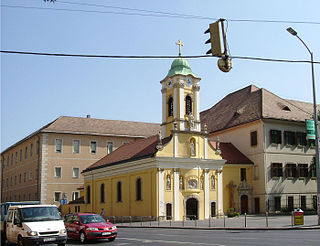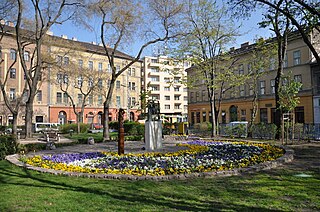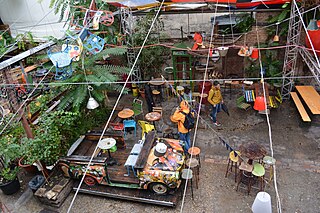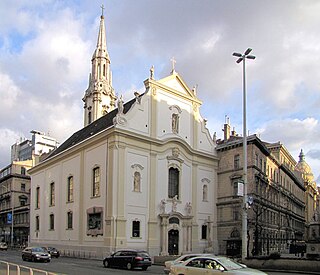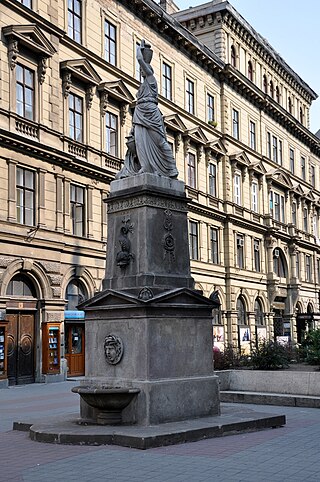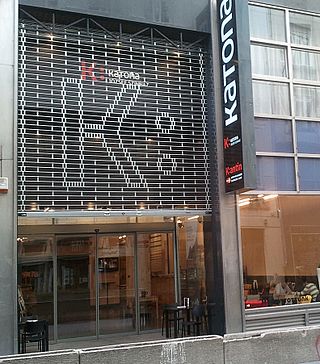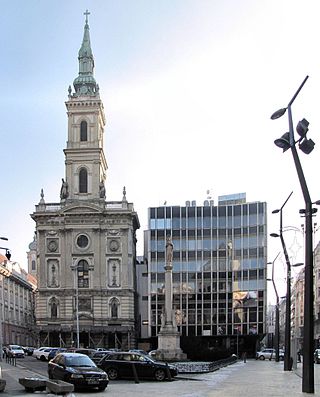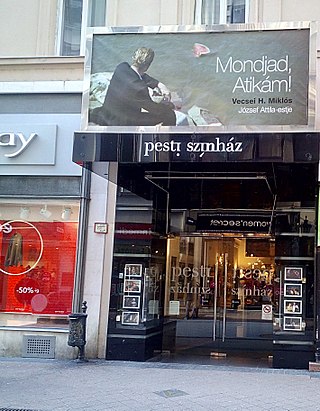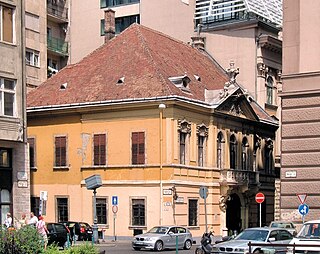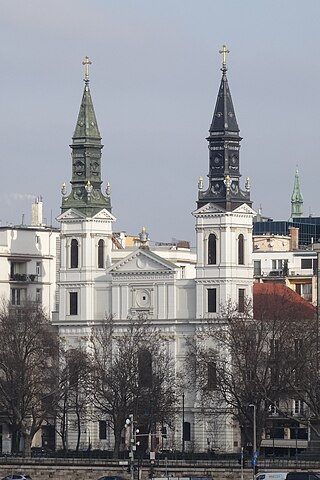Self-guided Sightseeing Tour #9 in Budapest, Hungary
Legend
Guided Free Walking Tours
Book free guided walking tours in Budapest.
Guided Sightseeing Tours
Book guided sightseeing tours and activities in Budapest.
Tour Facts
2.9 km
51 m
Experience Budapest in Hungary in a whole new way with our self-guided sightseeing tour. This site not only offers you practical information and insider tips, but also a rich variety of activities and sights you shouldn't miss. Whether you love art and culture, want to explore historical sites or simply want to experience the vibrant atmosphere of a lively city - you'll find everything you need for your personal adventure here.
Activities in BudapestIndividual Sights in BudapestSight 1: Szent Rókus-kápolna
The St. Rókus Chapel in Budapest is named after Saint Rocus, the miracle-working Franciscan monk and patron saint of those cured of plague epidemics. In its present form, it has been standing since 1765 along Kerepesi, today's Rákóczi Road, on the Józsefváros side of the road.
Wikipedia: Szent Rókus-kápolna (Budapest) (HU), Url Miserend
Sight 2: Kéthly Anna tér
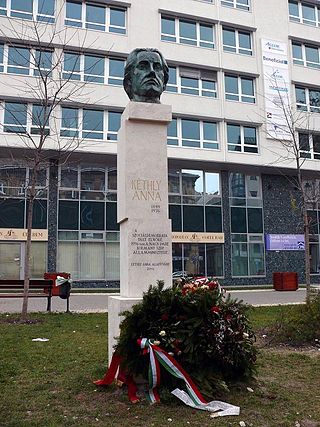
Kethly Anna Square is a new square in Budapest VII. district, Erzsébetváros. It got its name in 2001. The square was designed by Katalin Baraczka.
Sight 3: Klauzál tér
The Klauzál tér was the largest square in the former Jewish quarter of Budapest, Hungary. Located in the seventh district, it was the heart of the city's old Jewish quarter. Nowadays, this area is also known as the party district in Hungarian bulinegyed, because of its many pubs nearby.
Sight 4: Szimpla Kert
Szimpla Kert is a ruin bar or romkocsma, which means "Simple Garden" in Hungarian, located in the Jewish Quarter of the 7th district of Budapest, Hungary. It is considered the pioneer of ruin bars. The pub started as a place for people to find a cheap drink in a relaxed environment, but has grown to become a tourist attraction and community center. Movie showings, live music performances, an art gallery, the Kazinczy Living Library, the Szimpla Farmers' Market, and the Szimpla Bringa bicycle flea market are just a few of the community activities that are held at the bar.
Sight 5: Belvárosi Ferences templom
The St. Peter's Church of Alcantara in Budapest, often just a downtown Franciscan church, is located in downtown Pest, on Ferenciek Square. Roman Catholic, protected as a monument Franciscan church. Its patron saint is St. Peter of Alcantara. Parish church, next to it stands a Franciscan monastery.
Wikipedia: Alcantarai Szent Péter-templom (Budapest) (HU), Url Miserend
Sight 6: Nereidák kútja
The Fountain of the Nereids or the Fountain of the Nayads is a group of statues depicting two female figures with dolphins and shells on their pedestals in Ferenciek Square in District V of Budapest.
Sight 7: Katona József színház
The Katona József Theatre has been operating as a theatre with its own company in Petőfi Sándor Street since the autumn of 1982. In a short time, it became Budapest decisive, artistic theater. Even after three decades, he continues to entertain his audience with demanding, internationally renowned productions. The company performed abroad for the first time in 1985, and since then it has visited forty countries in five parts of the world.
Sight 8: Belvárosi Szent Anna-plébániatemplom
The St. Anne's Church in the City Centre, also known as Servita Church, is located in Budapest, in the city center, on Szervita Square. Until the end of World War II, it operated under the administration of the Servite order, today it belongs to the Downtown Assumption Parish. The church is a category I monument under Act LIV of 1997 under trunk number 15394.
Wikipedia: Belvárosi Szent Anna-plébániatemplom (HU), Url Miserend
Sight 9: Pesti Színház
The Pest Theatre is the chamber theatre of the Vígtheatre in Budapest, the venue located in district V has a capacity of 538 spectators.
Sight 10: Peterffy palace
The Péterffy Palace is a baroque city palace located next to March 15 Square in Budapest, at 2 Piarista Street. It is an important monument of Hungarian Baroque architecture, the only secular Baroque building preserving Pest's original form. Since 1831, the Centennial Restaurant has been operating in it.
Sight 11: Istenszülő elhunyta Nagyboldogasszony-székesegyház
The Assumption Cathedral of the Blessed Mother of God is a Russian Orthodox cathedral in Budapest, district V. It is part of the World Heritage View along the Danube.
Wikipedia: Istenszülő elhunyta Nagyboldogasszony-székesegyház (Budapest) (HU), Website
Share
Disclaimer Please be aware of your surroundings and do not enter private property. We are not liable for any damages that occur during the tours.
GPX-Download For navigation apps and GPS devices you can download the tour as a GPX file.
